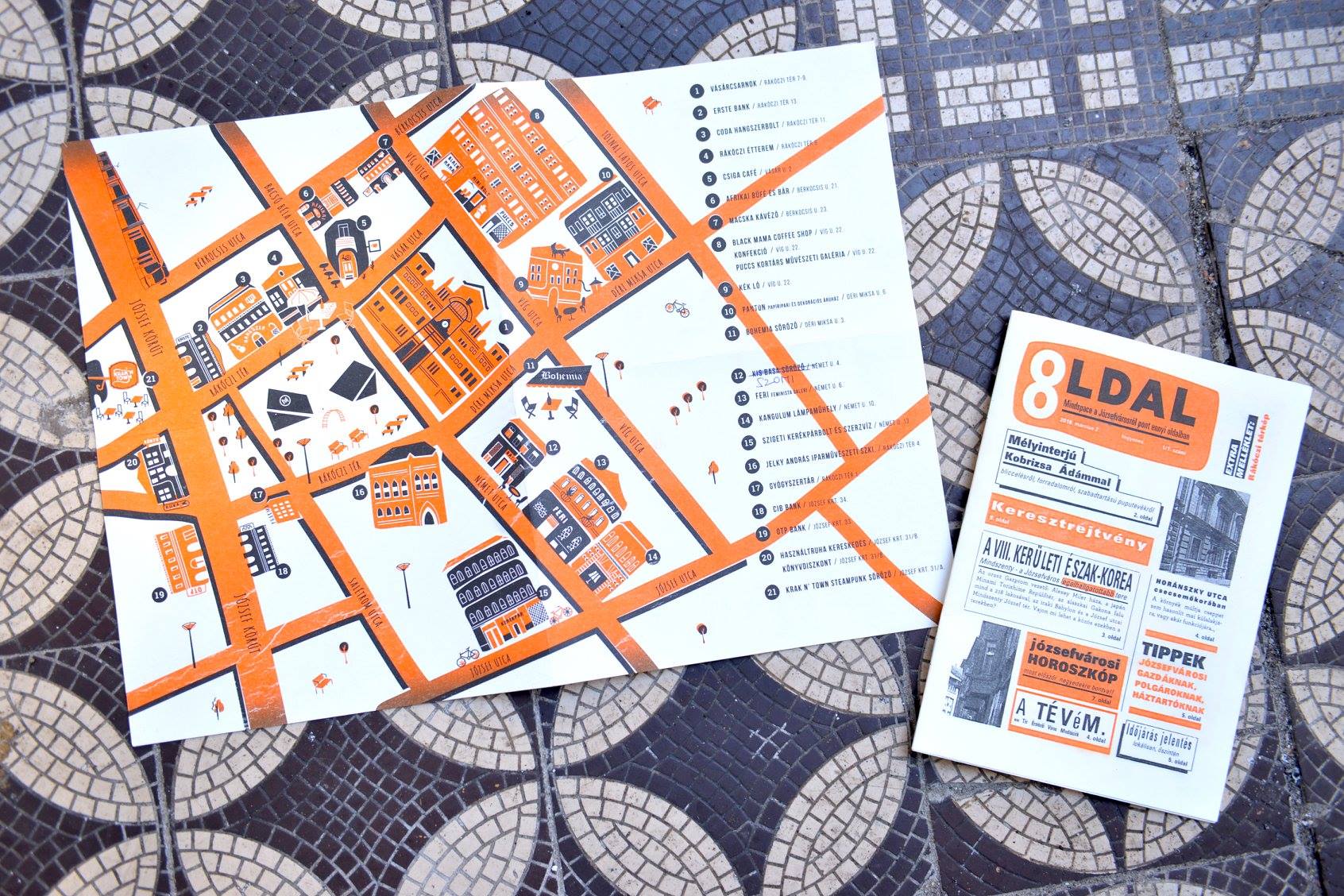Mindspace is a non-profit organization based in Budapest and founded in 2011. It manages cultural urban projects with a focus on smart and livable neighbourhoods and sustainability, using participatory methods and recreational activities. Ádám Kobrizsa, co-founder of Mindspace, talks about the history of the project and its future.
How did Mindspace start?
We opened Mindspace in 2011. We had experience in the Hungarian NGO sector as well as professional backgrounds in management since me and my co-founder had studied civil engineering and had worked together at the Hungarian Cyclists’ Club. At some point, we established our own independent organization focussed on dealing with urban issues, as we were passionate about the idea of creating a livable city. Moving to another area of work didn’t scare us because we were already familiar with the system of applications and with this general framework.
My first job focused on water management as, from 2004, I was one of the organizers of the Danube Day in Hungary, an International Commission for The Protection of the Danube River (ICPDR) initiative. With Mindspace, we returned to the Danube topic in 2012, and we started the Danube Flow chain of events. We received financial support from Coca-Cola and HBC, and we collaborated with partners such as VaLyó and Krimiestek. We ran this project for over 4 years, and we organized over 50 events, mostly on the river bank of the Danube.
In 2014 we launched the website smartcitybudapest.eu, as part of our Smart City Budapest Initiative. We envisioned this website as a platform for all those interested in smart city related projects across sectors. Catalyzing such a larger network activity was a naïve idea, but we started with awareness raising activities and collected many grassroots initiatives from Budapest, always communicating in English. In 2015, we also received funds from the Visegrád group to organize conferences about gamification and smart city. By the end of the year we realized that we needed longer term funds to continue our work.
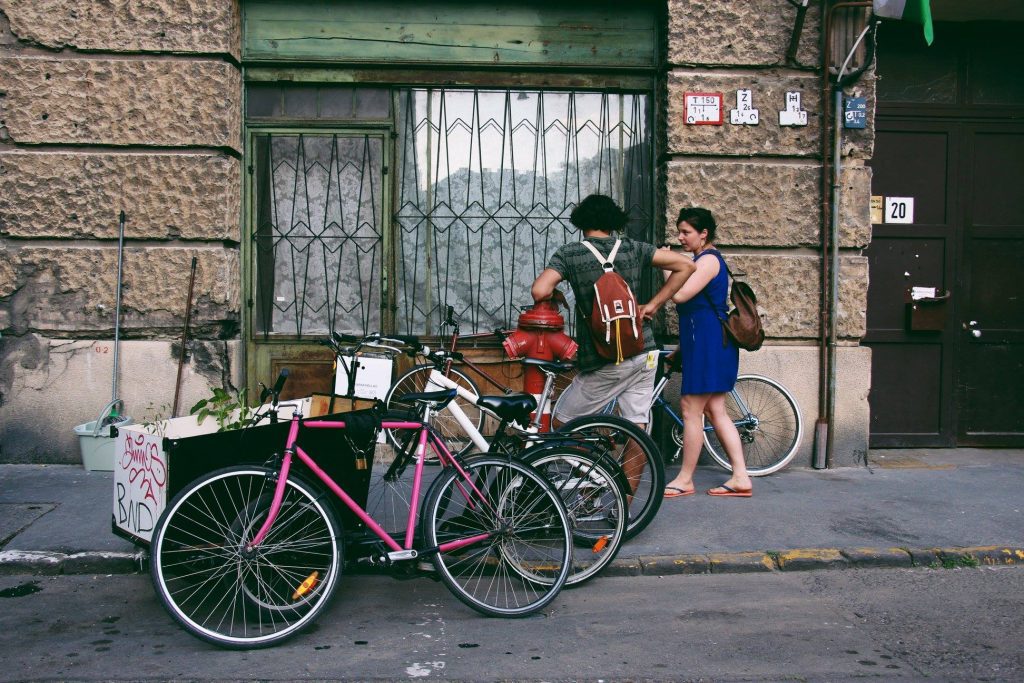
How else were you sponsoring Mindspace?
In the beginning it was just the two of us, me and my co-founder. We didn’t receive money from any organizations; we sometimes received small sponsorships, and we were each earning around €200 per month. We were trying to avoid a pure voluntary basis work, but the income was still very little. We received some Visegrad funds that we used for small scale smart city related conferences and workshops. Luckily, a company with interests in the region of Lillafüred (North-East part of Hungary) contacted us to implement a gamification project there, as they wanted to improve communication and knowledge transfer with the tourists of the region. We had a clear vision about our goal, and these small-scale projects allowed us to enlarge our networks and make friends in the sector.
In 2015 we got involved in the consortium reSITE, but we initially didn’t receive any financial support. Later, the Goethe-Institut joined the consortium and became a lead partner for the project. They re-wrote the whole application, adapting the target and adding activities, and we won the Creative Europe fund and started the Shared Cities Creative Momentum programme. Creative Momentum enabled us to establish a new consortium which could operate locally but would also establish cooperation with other 11 partners from different countries, in favor of knowledge sharing. We achieved a dream! We entered huge network and launched a three years long project that would be considered to be a mid-scale project by Hungarian standards. For three and half years, between 2016 and 2019, we received €130.000.
How did you use the money?
We started out slowly. In the beginning, we were happy and we realized that we had to slow down and take into consideration all possibilities and understand what was helpful and meaningful. We held public discussions, small scale lectures, and tried to reflect on how to improve the quality of urban life. We opened a space that we called “Mindspace Urban Pop up” that was open to talk about urbanism. We were very naïve, I realize it now, but this was our concept then.
Some Dutch interns worked with us and we researched public space usage, using mental mapping and observation, sharing the acquired knowledge afterwards. At first, we were more theoretical and interested in sharing what we learned from our work in the city with experts in the field. But by doing so, we were leaving the citizens out.
How did you move to Rákóczi Square?
Soon after Creative Momentum, we also won a smaller Visegrad grant. I was very much in the middle of all these activities, working mostly in the Palace District, and I felt I couldn’t understand what was happening so I asked Vera Vida for help. She was specialized in nightlife activities as one of the founders of Kolorado Festival and of Toldi Klub, but at the time she was also changing her field of work.
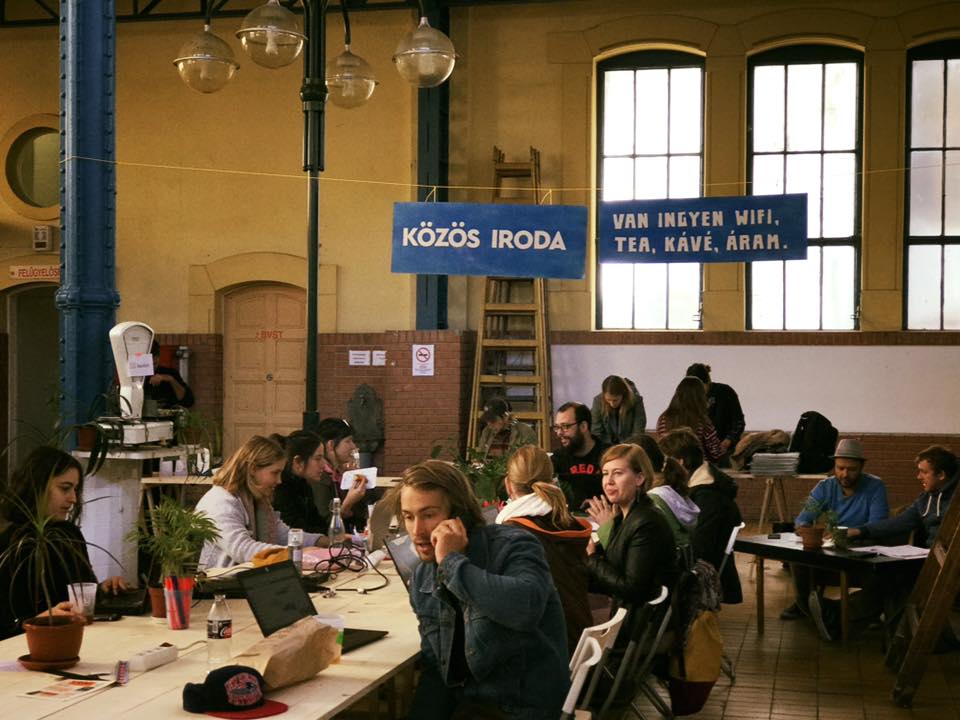
Rákóczi Square Market Hall was suffering because many market hall shops have been vacant for years. We spent about two months researching this project and trying to understand the problems encountered there. Using this Visegrad Fund, we organized a short workshop in vacant stores in the market; and because of the amazing acoustics of the market, we had concerts in the evenings, after closing times. Vera saw the possibility of working with the market to make it active again. She wrote a project imagining a creative use of the market hall, and she invited artists for pop-up activities. We then started a series of community actions such as the Rákóczi Breakfast, in a former vacant shop that is now rented to Eldoradò Cafè (the breakfasts were then moved to the opposite corner of the market). We wanted to work as a catalyst for the revitalizarion of the market, to begin bringing something so that businesses could then gain visibility, and continue their regular work.
Last summer, we also ran a four-day long summer camp for 4 groups of children, we called it the Rákóczi vacation. With the help of volunteers and of the businesses around, we received around 35 children, many of them coming from the unprivileged childrens home close by, where kids with problematic backgrounds live in. Eldoradò Cafè prepared lunch for them every day, they organized a poster workshop with lithograph techniques and photo workshops. It was an actual civil action targeting the young generation, taken on with dedication and belief.
We also launched a Pop-up office project, a plant exchange event that was hip, and we published 8 Pages, a local newspaper where we use humor to discuss issues relevant to this sub-district of the 8th District.
We expanded our work to the surrounding streets where many empty shops were located. Last November, it became clear that we couldn’t do too many things inside the market because it was getting cold, so in December 2017, we established a Rákóczi Cartel. The aim is to provide location in vacant buildings around Rákóczi Square to community-based creative small businesses and cultural spaces. We didn’t have an actual plan when we launched the project, and some people saw us as a sort of real estate where we could just assign spaces. In fact, we became a network that supports businesses by finding spaces to rent, managing the contacts with landowners, carries out all their administrative paperwork and deals with the municipality. They became our subcontractors and we help them with what they need. Mostly, they already have good business plans in place as well as communication strategies, and they need practical help so that they can focus on their core business.
Which organizations are part of the Rákóczi Cartel?
Rákóczi Cartel now manages nine spots. Not everything has worked fluidly, and we had some delay, our organisation is not always the most efficient. Yet, since December, we managed to rent a space on Vasar utca which hosts two shops on the ground floor (Baba concept store and Verkstaden silkscreen studio) and two offices in the gallery (hosting the UbikEklektik Festival and the Mindspace office). The BRFK Gallery, a gallery run by independent photographers; the BARTRArt Residency space, which is an audio-visual makers space; and Hurrikan Press office, are also a part of this network. We hope to open a shared office, a gastronomy place and a storage space for Mindspace, all in the vacant stores of the market. The project will probably expand and we will most likely receive tips about available spaces in the future.
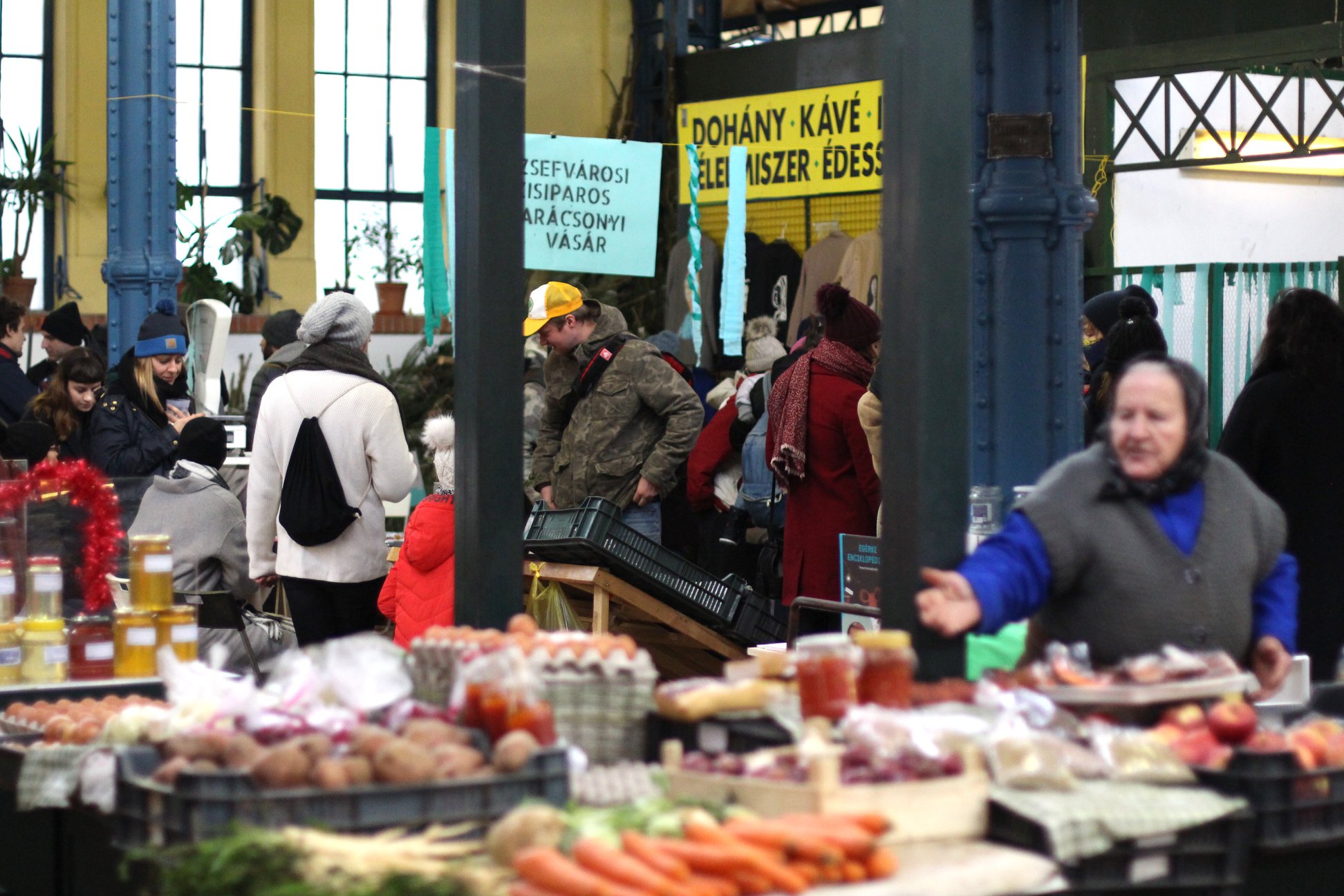
Where was the Mindspace office located before?
We used to be at Mikszáth square, in the inner 8th district, also called the Palace Quarter. We were using the space of Lumèn cafè, of which I am a co-owner. Since I was familiar with that area, at first, we were working there a lot and we installed a large 8tg district map on which we highlight our selected project area. My mental map has been for a long time narrowed to that area, so we moved Mindspace office here because it made much more sense to be close to the area of intervention.
What will happen at the end of Creative Momentum? Do you expect to renew the project or receive funds from somewhere else?
We are working on it but we cannot be sure. We were discussing our success with Creative Europe, but it is not sure that we can renew the same grant. We also had an Interreg Central Europe Programme grant for a project that is not connected with this neighborhood: we became communications partners with NewPilgrimAge (NPA), an organization committed to safeguard cultural heritage, and we help them in their work in St. Martin. It is very important because it is a good income for the organization but is unrelated to our activities in Budapest. This is a two year project, which will end in 2020.
I like keeping this dimension in which we work with companies as well – although we don’t deal with large amounts of money. The grants have been the biggest part of our income, but we don’t want to just apply for grants, and we envision this organization as being self-sustainable and profit oriented. We’d like to obtain an income because we have good services for the market. Now for example, we also run a summer camp for Telkom, it’s an idea development camp for youngsters, and we are the facilitators, moderators and program developers as well.
How is your organisation structured?
We are a nonprofit Ltd, a specific legal structure in Hungarian legislation, which is not an association but through which we can apply for grants and have owners. It is funny, I am a co-owner of Mindspace, and we work like a normal business. We don’t have extra money, we spend everything on rent, fees, events, phone costs etc., and we have sub-contractors as graphic designers, we have the Budapest in 100 words project. The graphic designer is responsible for our promotional material but he is not inside Mindspace.
We have four people in our team, but nobody works full time. The person responsible for the financial aspect works part-time, one person works almost full time on the Interact project, I work a lot and I think I am 75% on board, and we have another creative person, Vera, working part-time as well. In Autumn and Spring, when we have more activities at peek, we also pay somebody for extra communication and video documentation, and we hired somebody in Spring to organize the urban art workshops. Now we have a person responsible for urban guided tours in the district, but this is a very specific project lasting only three months. We paid when we needed a PR consultancy and to send press releases, especially at the beginning of Budapest 100 words, because it was necessary.
What does it mean to perform this work in Budapest?
This city is developing in terms of infrastructure, construction… but the Hungarian political class attitude remains top-down and it is better to work in a small community and think out of the box. For the past two years, I have been so much inside this project that I forgot to observe what happens in Budapest. Now I try to find time to meet other communities, for example Hello Wood, a community for architects, designers and artists, and KÉK, an independent architects organisation, of which we are also members.
Who do you work with? Have you ever tried to collaborate with the local municipality?
We don’t want to enter political circles before the next elections, and we would like to grow more before then. We don’t feel any pressure, but in time, we would like to work with them. They never approached us and it would be unrealistic to expect them to be interested in us. I hope to create a portfolio we can present to the municipality in a business discussion, as I would prefer to collaborate with the municipality, but on a partnership level. They should realize the importance of our mediation between organizations and of the events we organize, and consider us as actual experts who can offer services and present final achievements, like a consultancy.
We have some international partners, we have a place-making brotherhood with people in Bratislava and Prague. We work with people in the district, for example, with schools,. Artemisszió had an exhibition with us, with Uccu, a Roma Informal Educational Foundation, and in general we are open to collaboration, but we don’t have time to seek them. Good collaboration requires time, and for now our attention is focussed on the Rákóczi market. Of course, at first we imagined working in the whole 8th district, but we eventually realized this wasn’t possible and we put our efforts into being present on an everyday basis here, in the market, and on the few streets around.
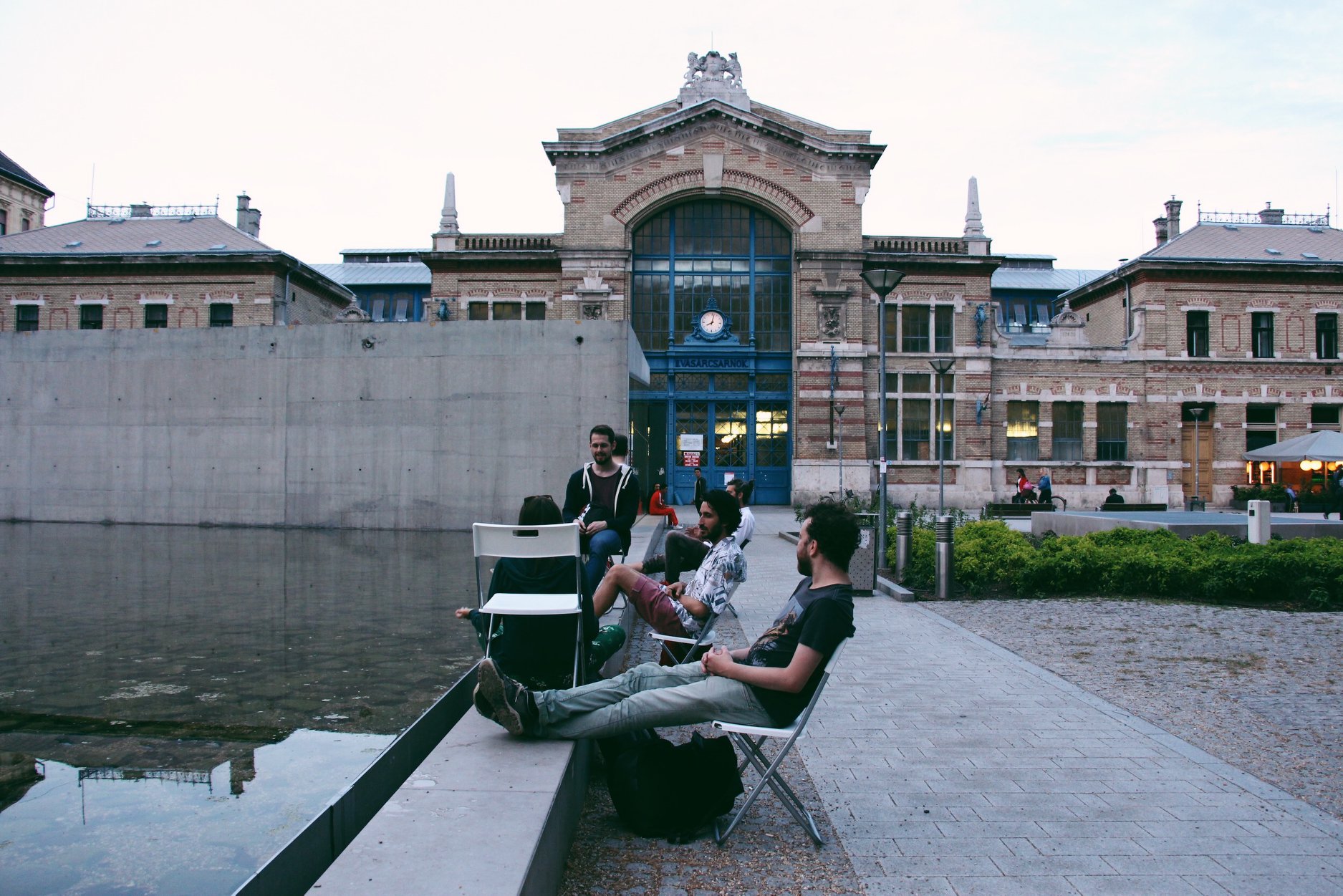
What is the next step of Mindspace?
I can’t complain now, we are in a good situation. I am over 40 years old, my dream was building a team with whom to deal with urban, social and cultural issues. I imagined us as an international organization, which would receive fees for the services provided while contributing to improve our society. I am proud because we didn’t give up, and I really want to share our knowledge and be honest about the huge effort we have invested in the project. The last phase of Creative Momentum is actually about result dissemination and now I have to talk about all our activities.
It would be better if we would have financial stability in the future, but we are secured for the next months and this gives us time to replan. I would like this organization to become more professional and to prepare the next season with more details and care. We have to understand how to further develop our organization. So far, many tasks have been dependent on me and activities would get stuck because of my time limits. I think it would be great to re-organize our tasks. It is easier now, because there are volunteers interested in working with us and we have few interns that provide us with extra human resources, but the effective management of interns and volunteers remains a challenge for us. The past year has been very successful, and we went with the flow, but I think we need to slow down a little and reorganize our activities. The Creative Momentum project will finish but we only started to work recently. We will have another year covered and we will try to be as professional as possible, establish more collaborations and a bigger programme; we will go out in the street for micro-festivals and street carnivals, all things that can make the market more visible. This will be the finale.
Interview by Greta Rauleac with Ádám Kobrizsa, October 2018.

